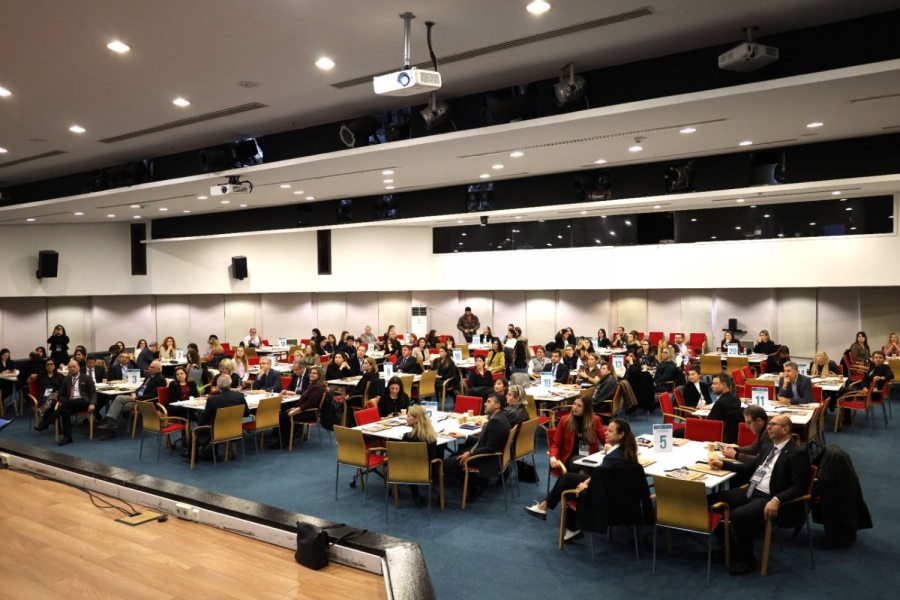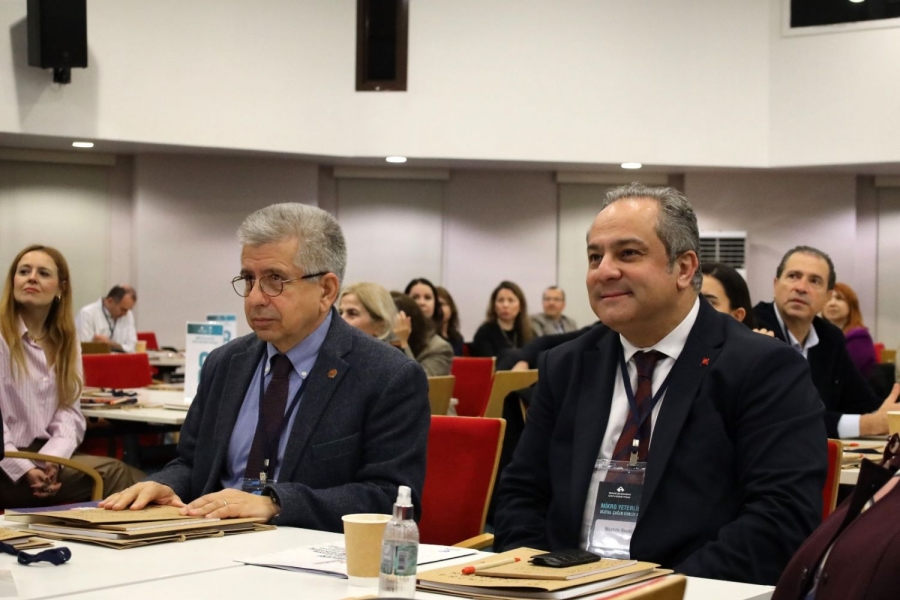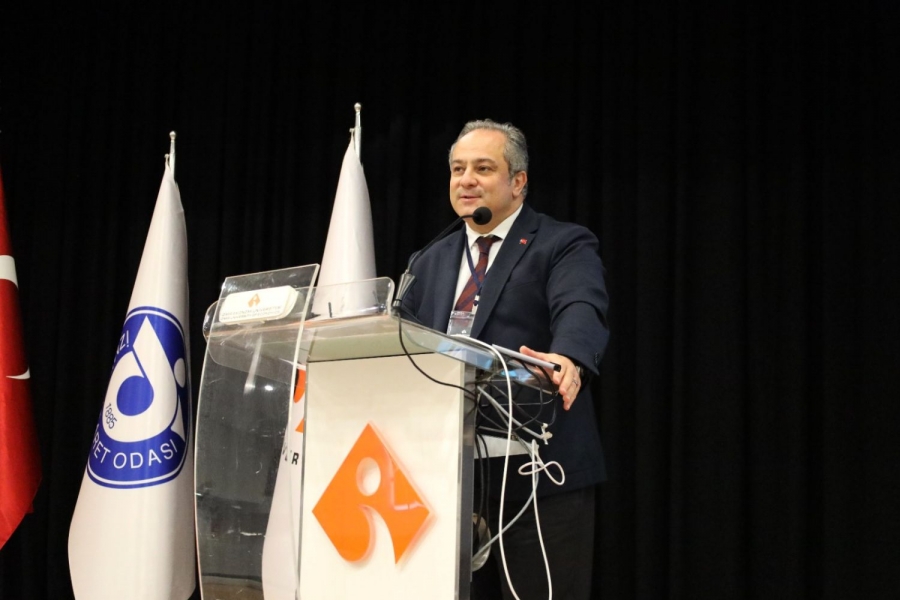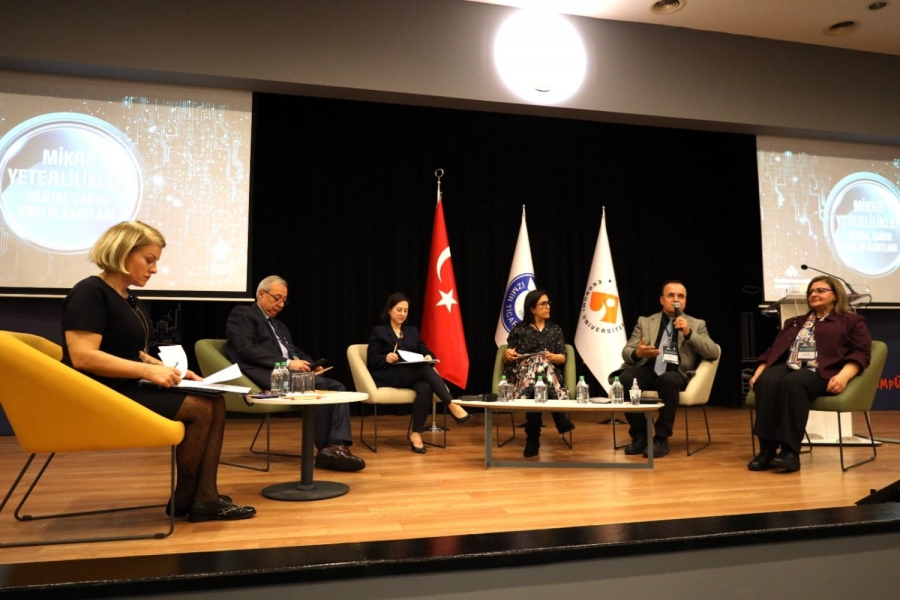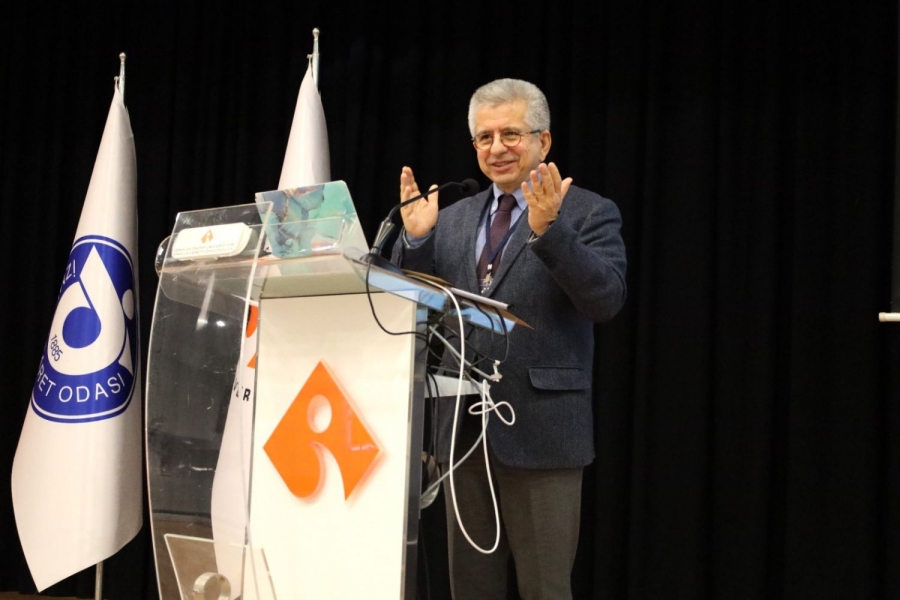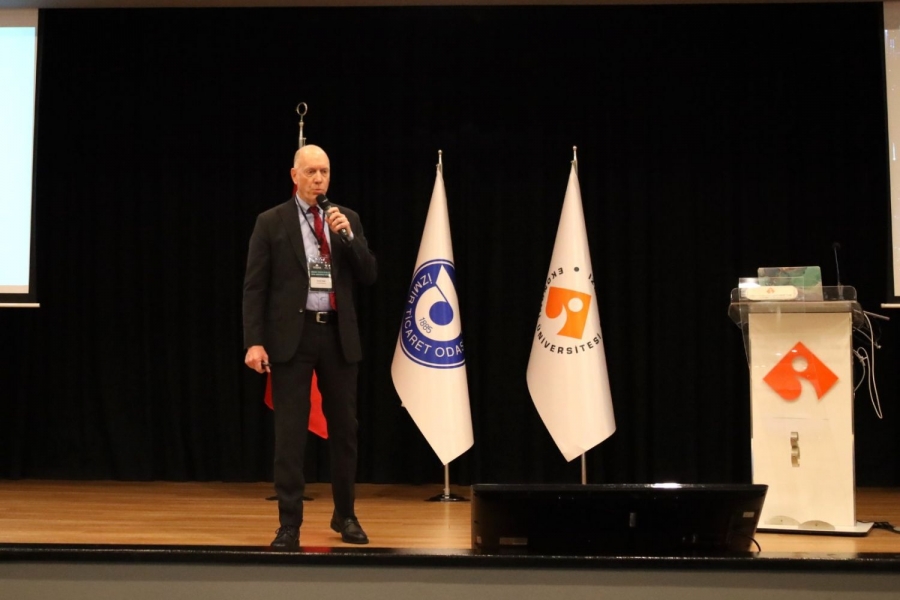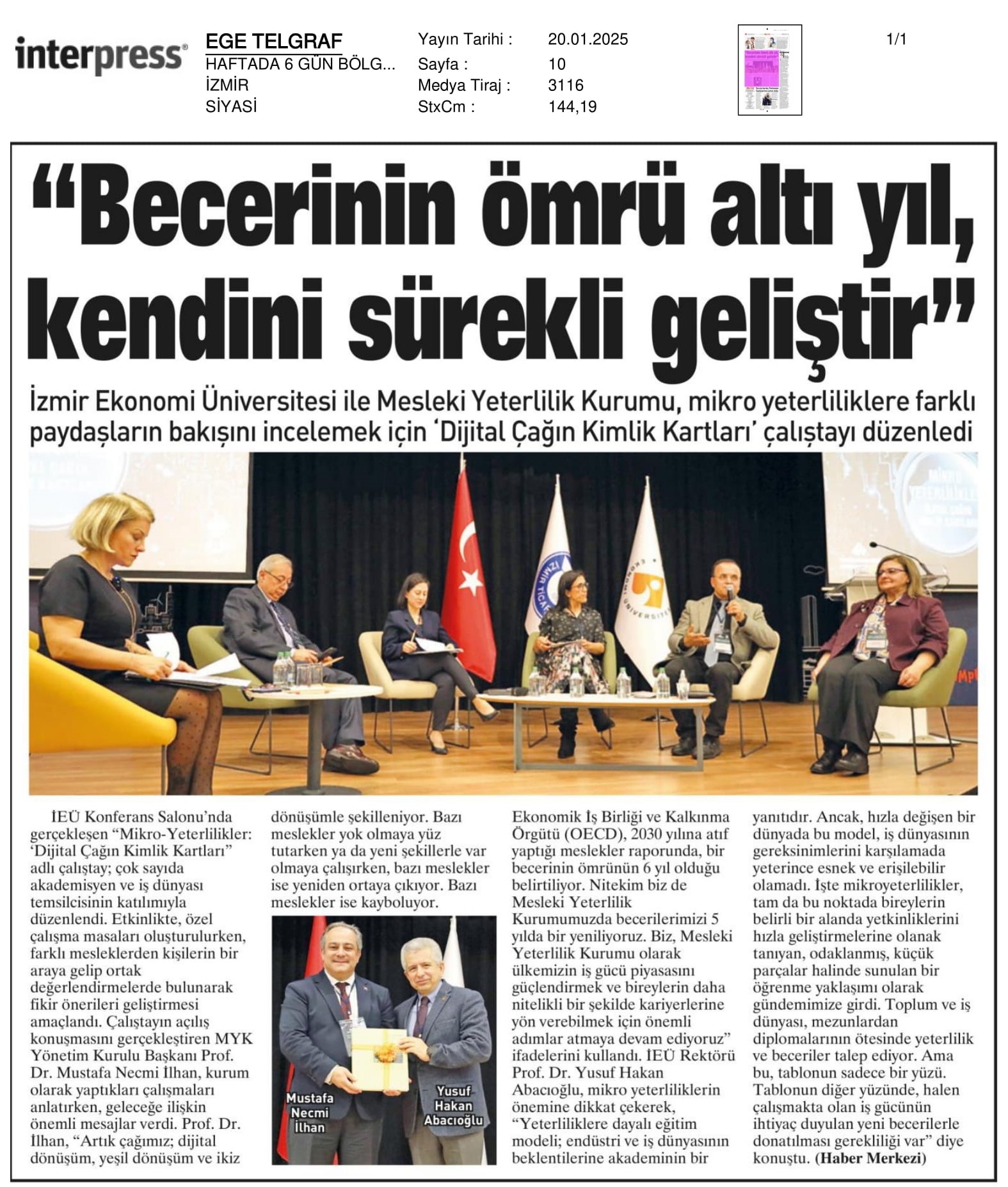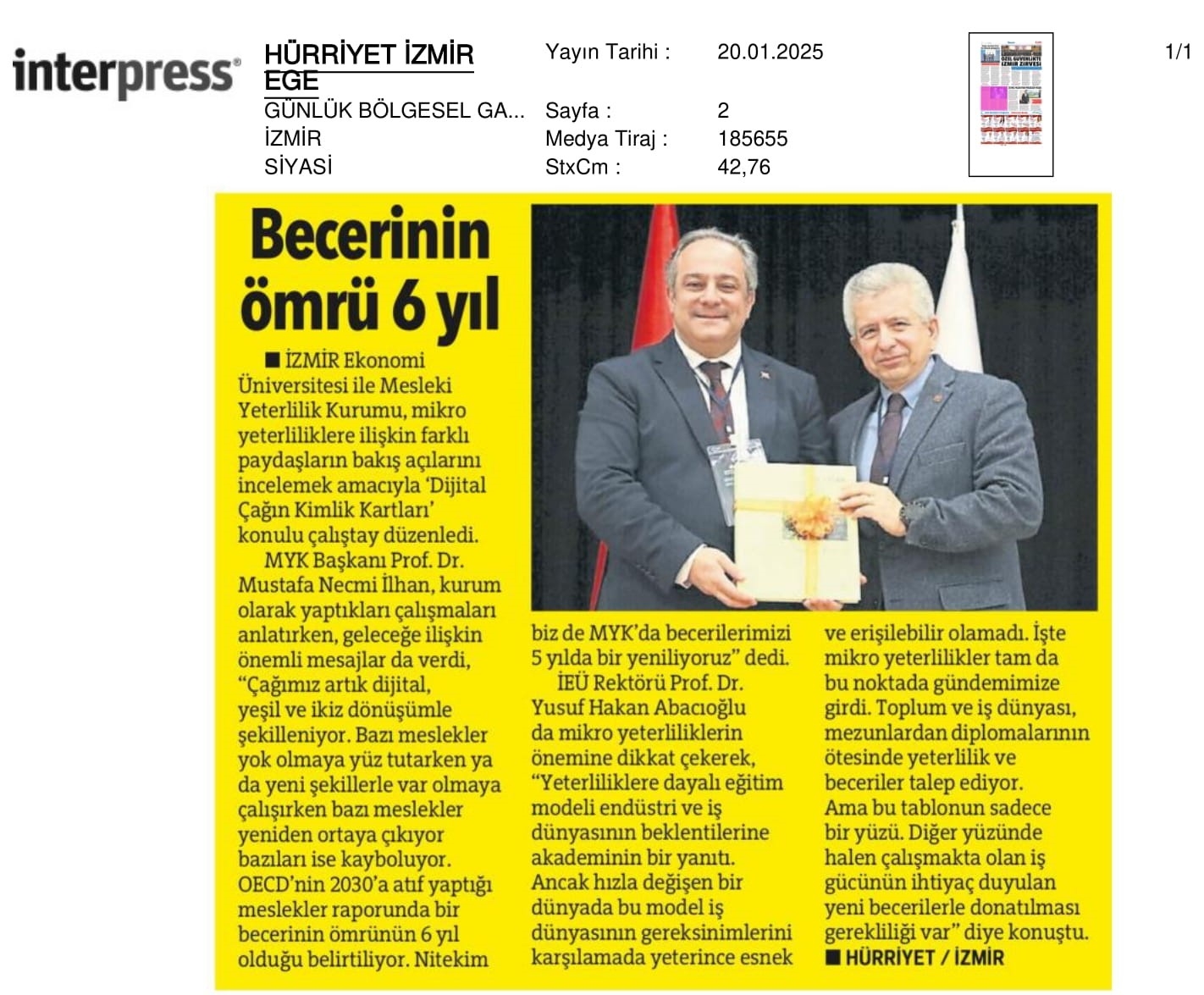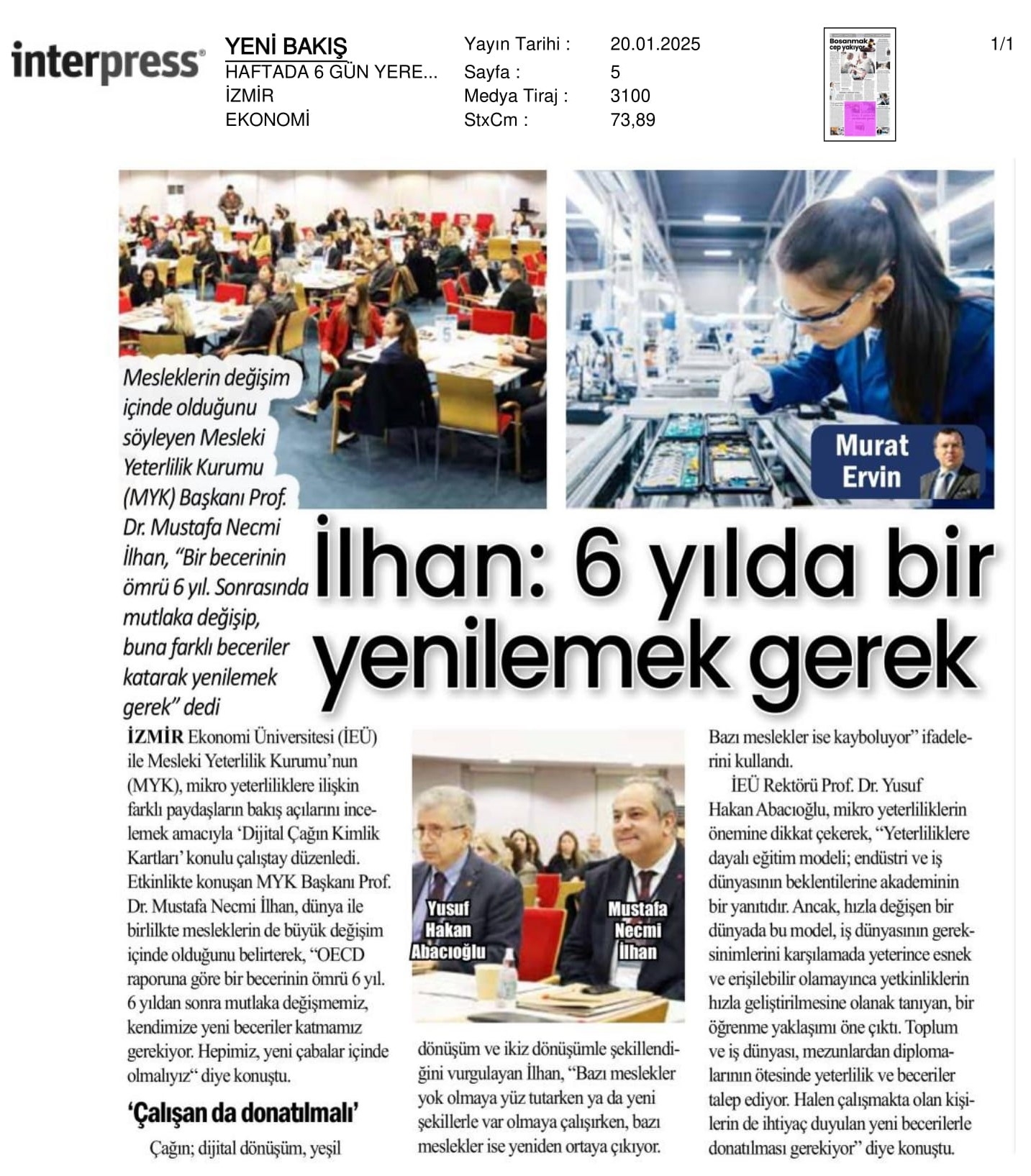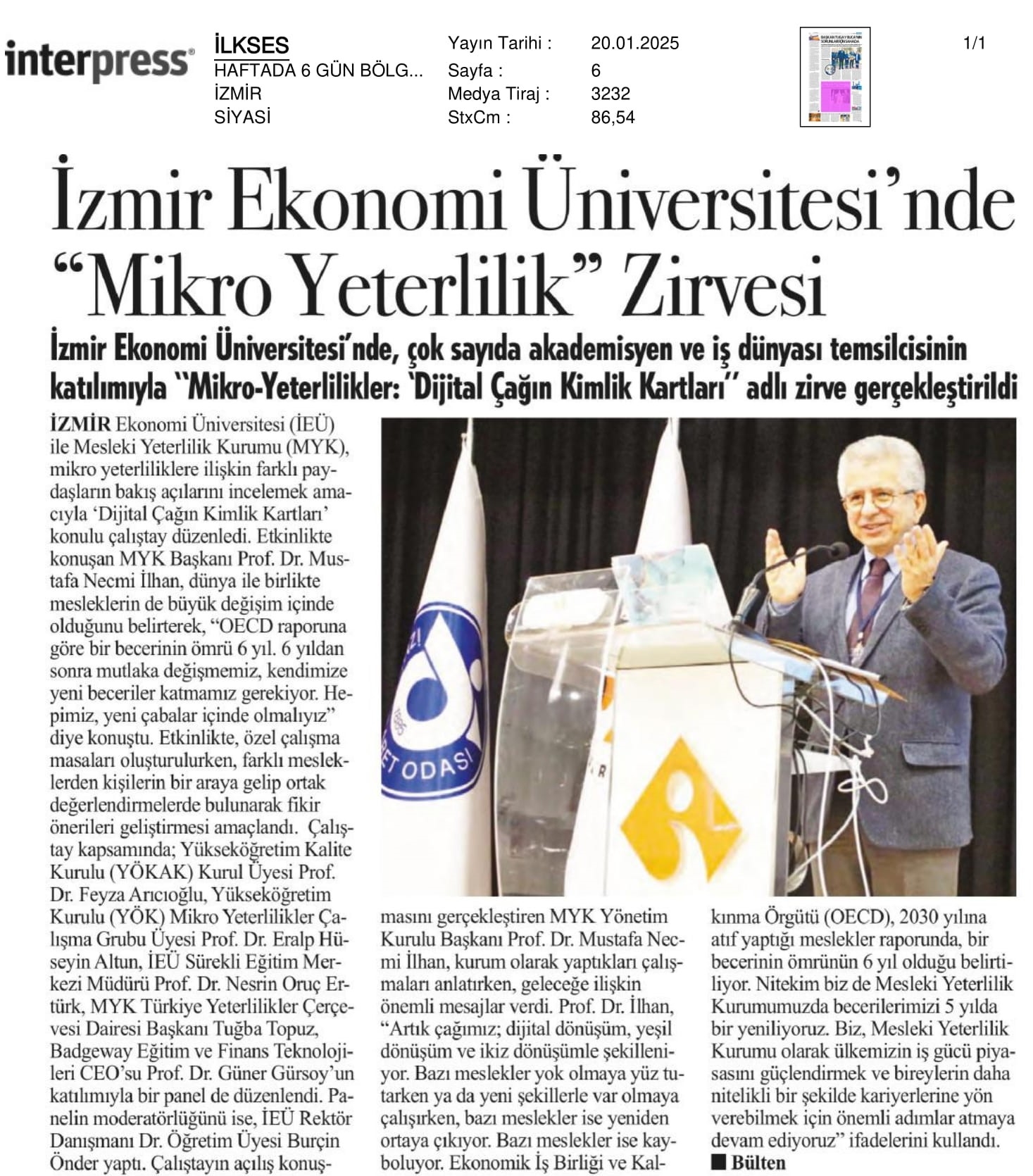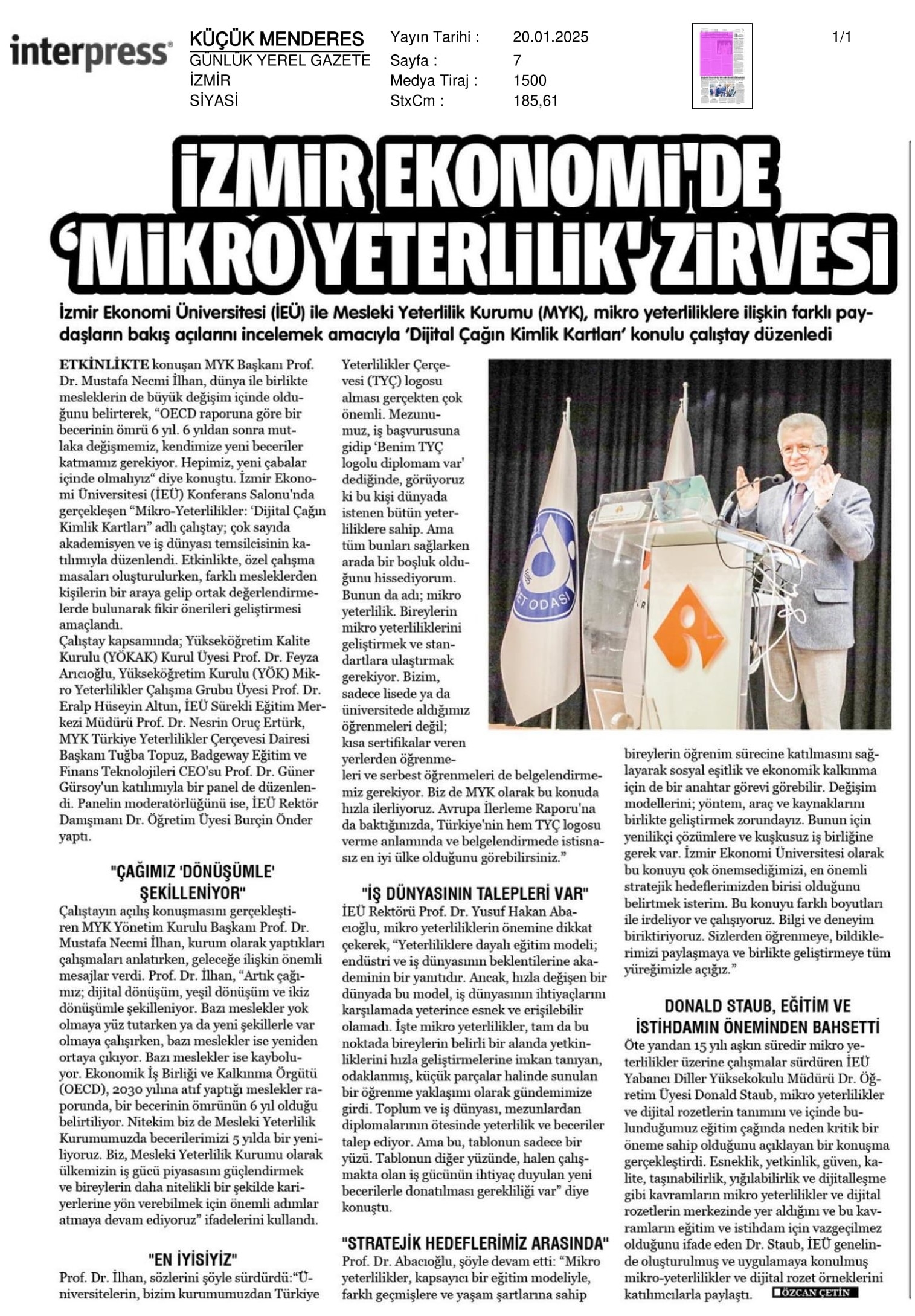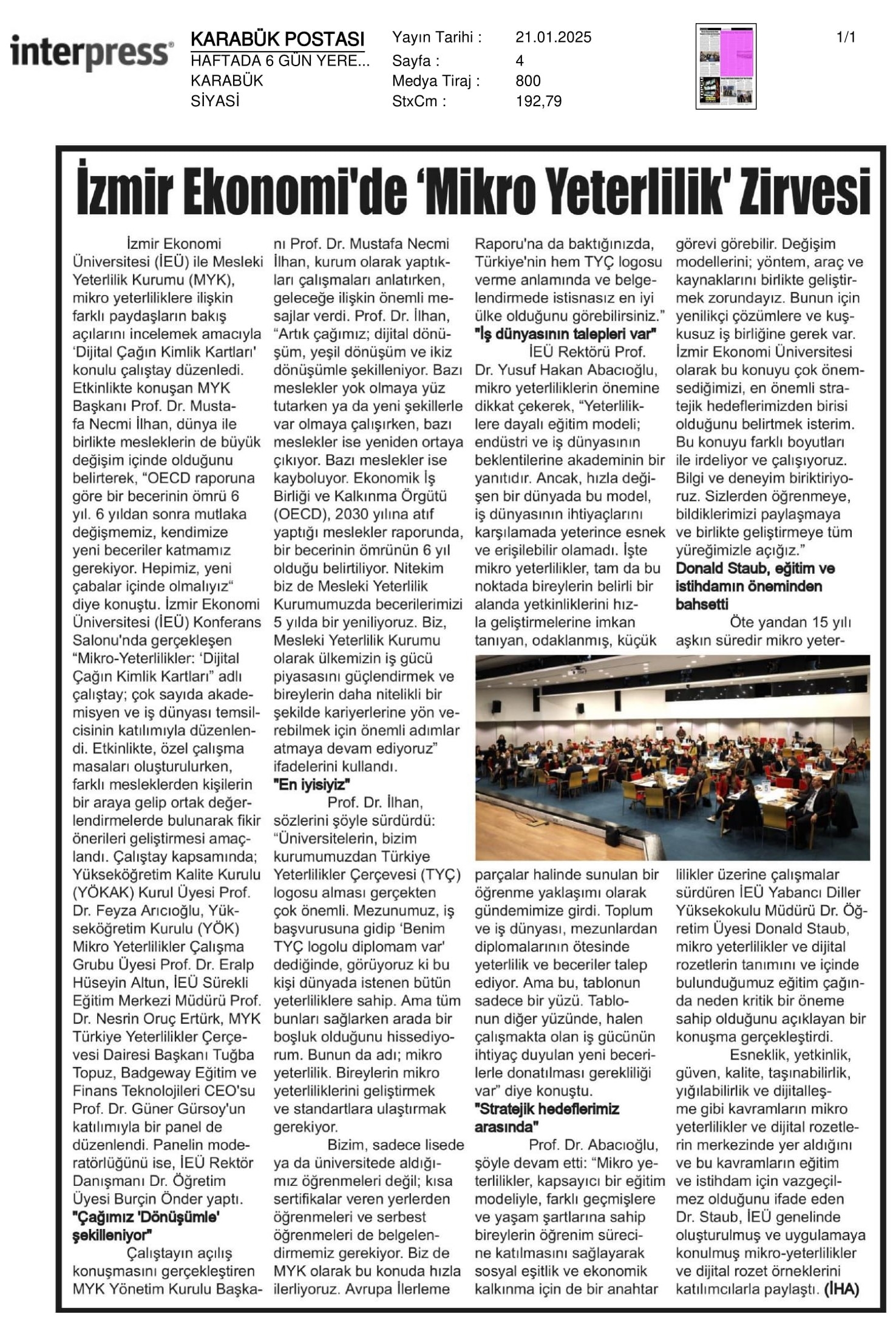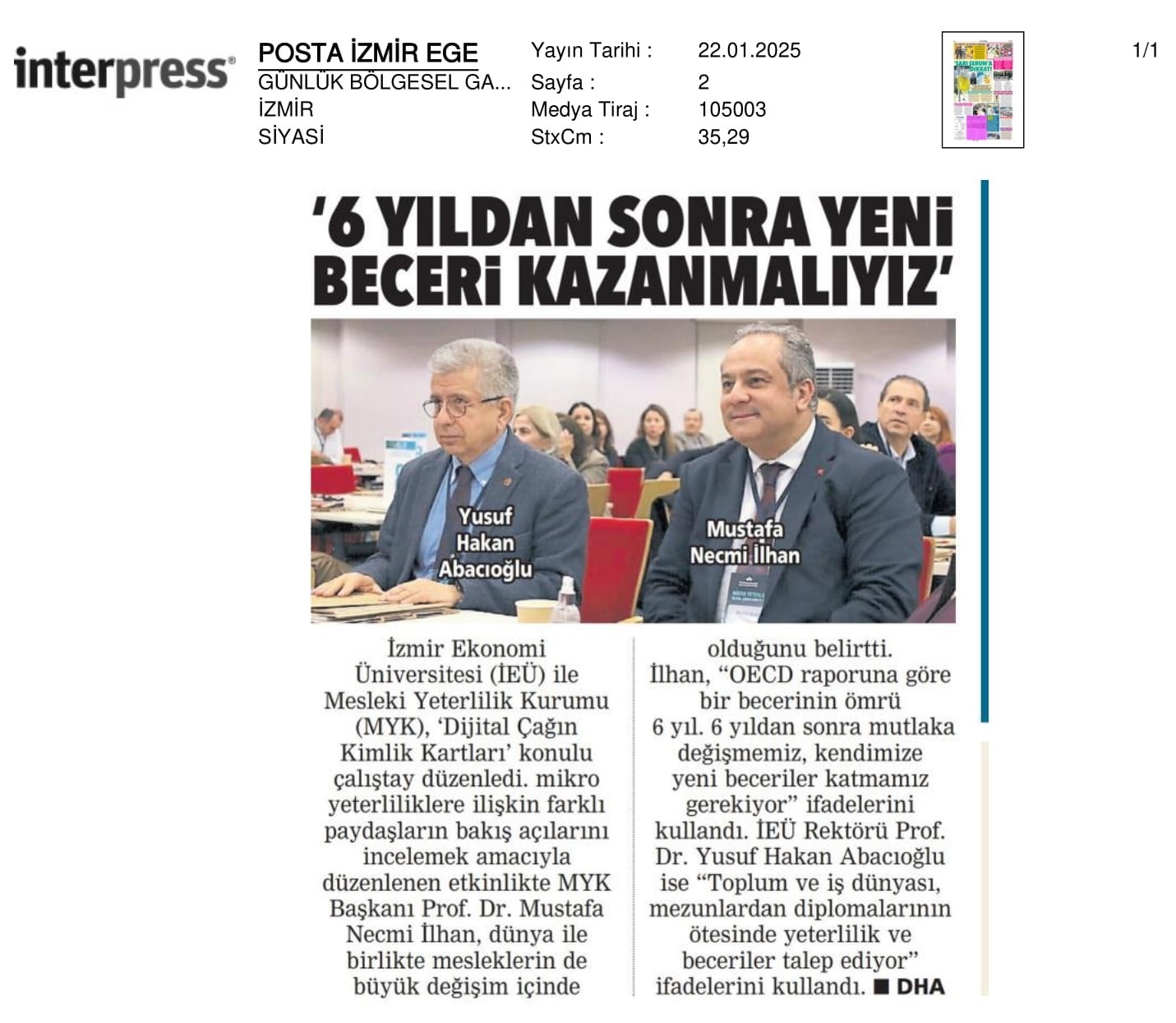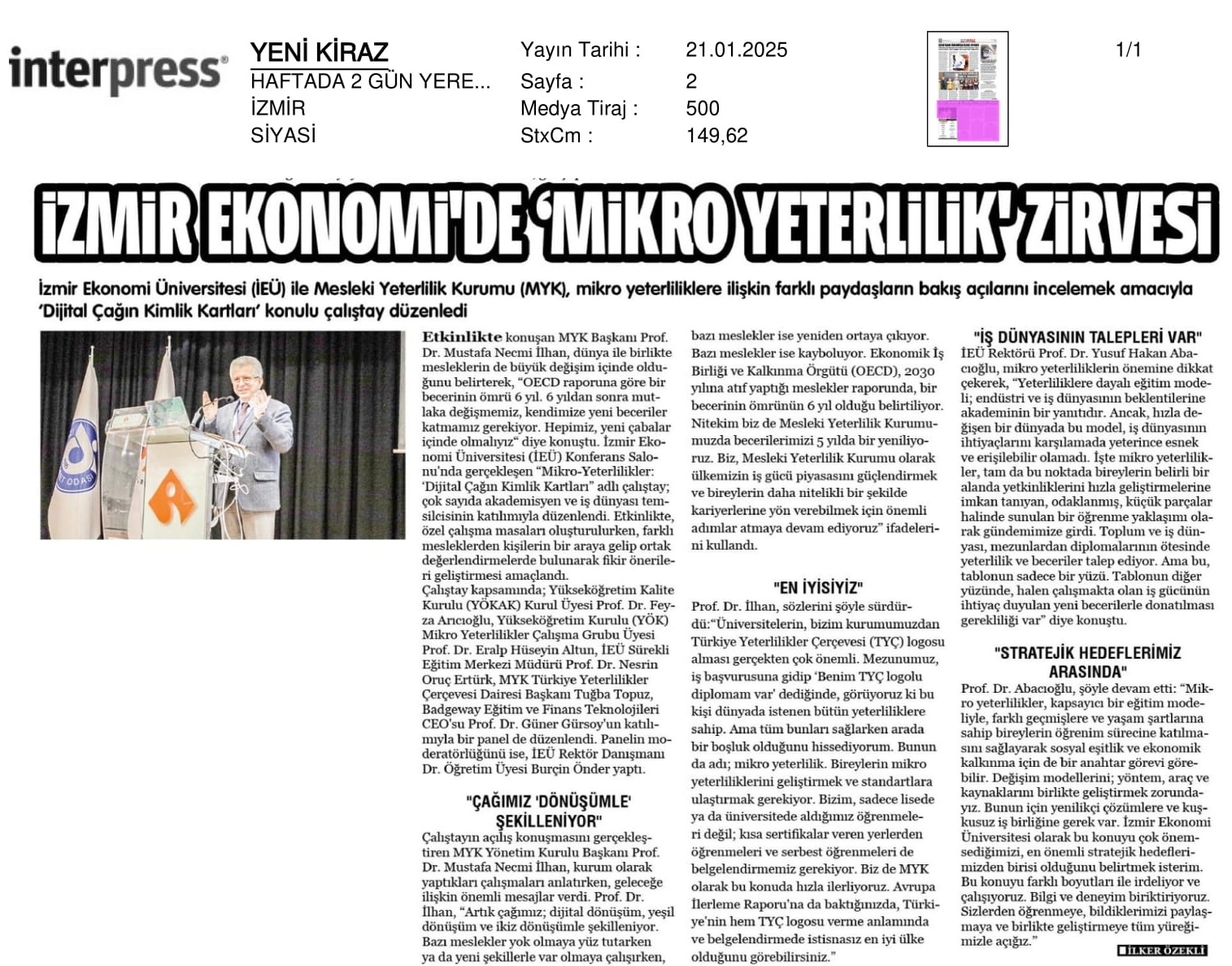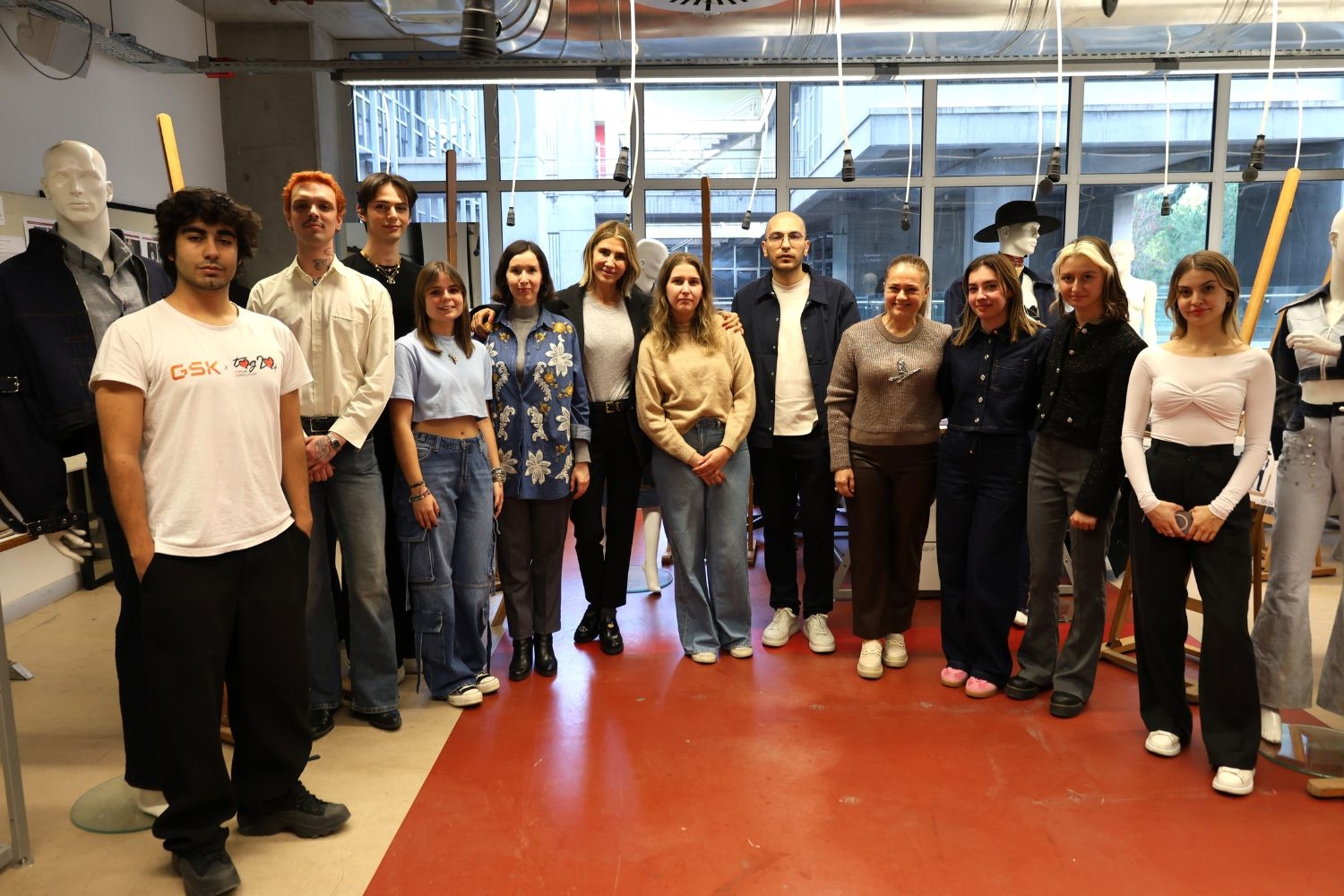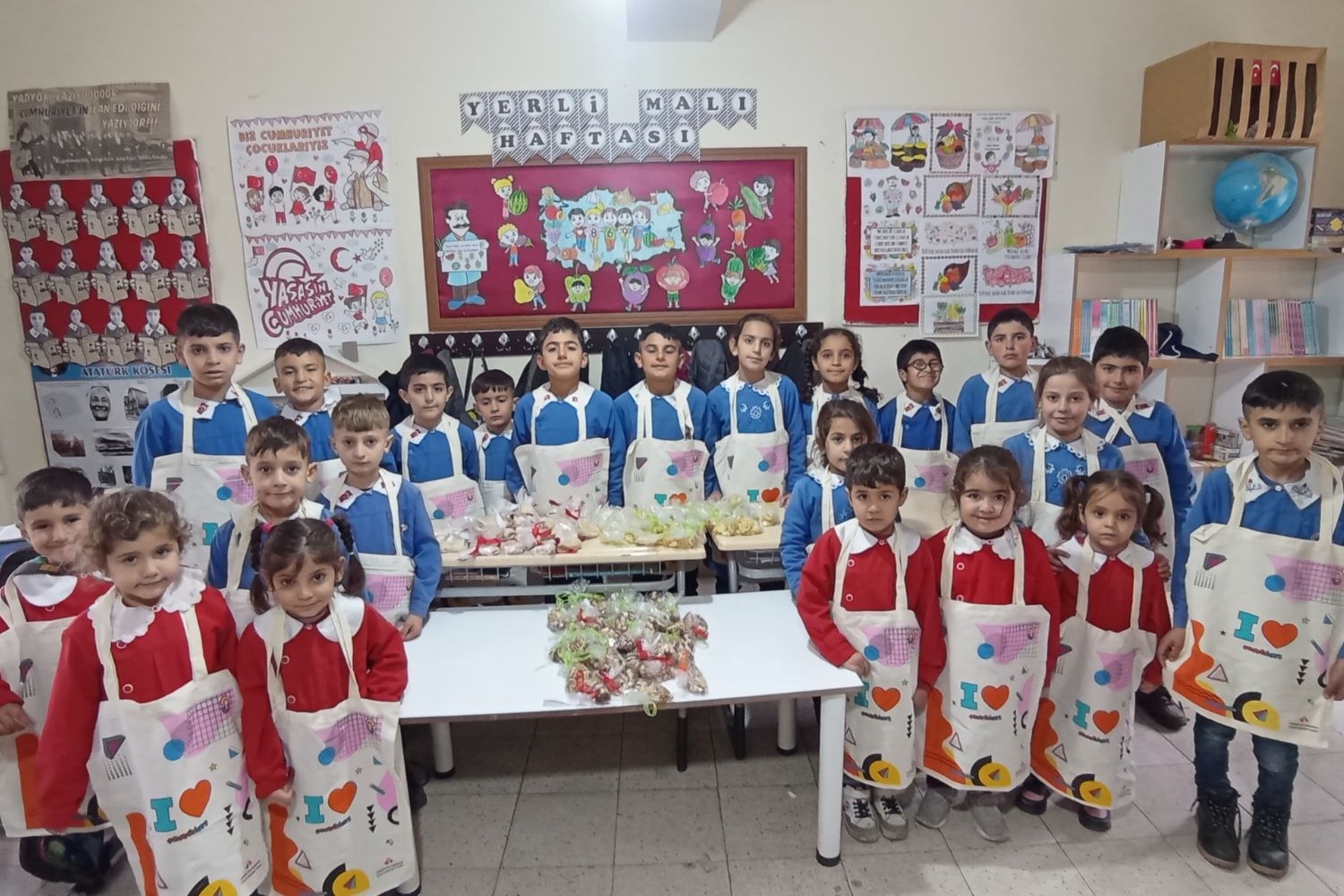‘Micro-Credentials’ Summit at IUE
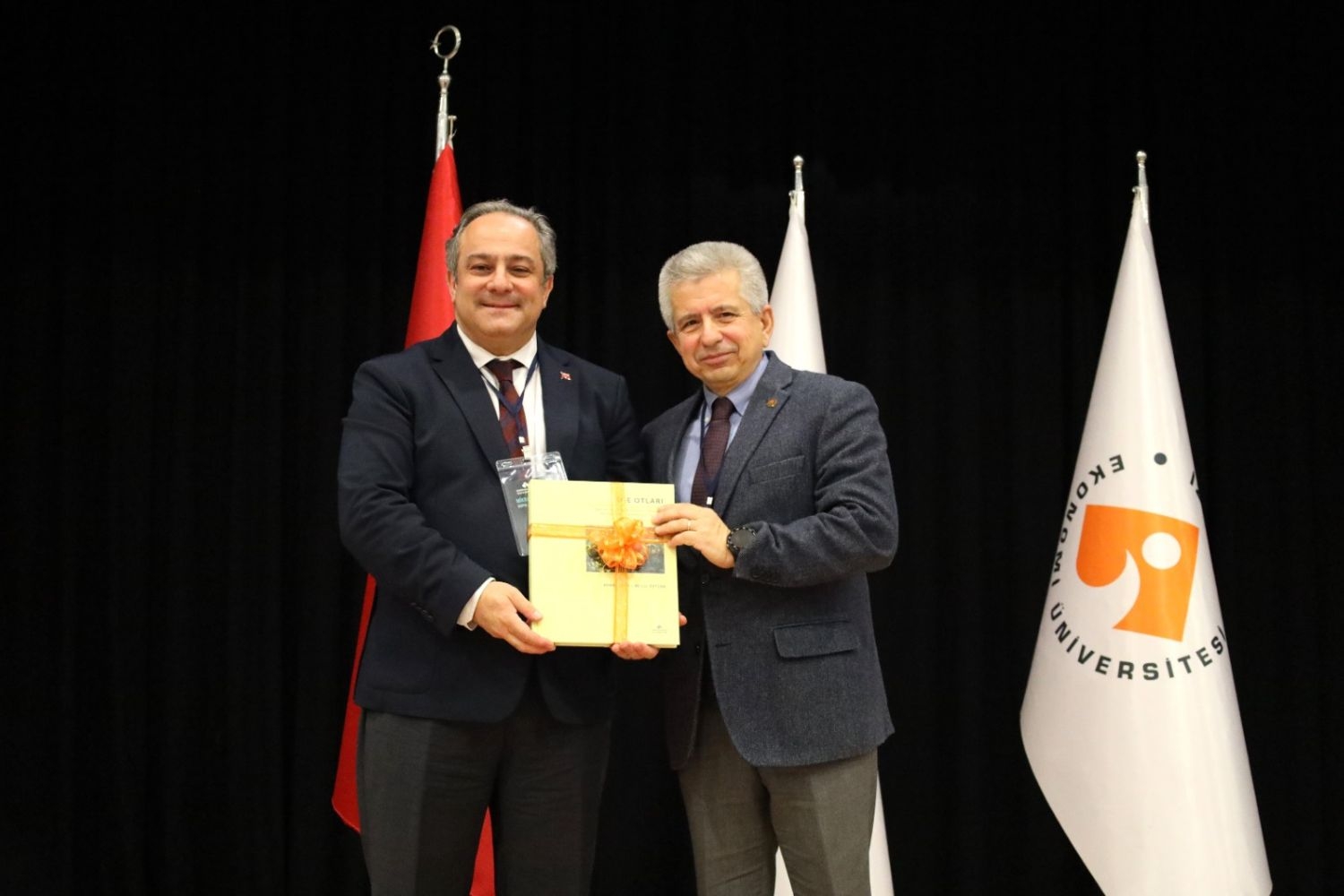
Izmir University of Economics (IUE) and the Vocational Qualifications Authority (VQA) organized a workshop titled “Identity Cards of the Digital Age” to explore the perspectives of various stakeholders on micro-credentials. Speaking at the event, VQA President Prof. Dr. Mustafa Necmi İlhan stated that professions are undergoing significant transformations globally, saying, “According to an OECD report, the lifespan of a skill is six years. After six years, we must adapt and acquire new skills. We all need to make efforts in this regard.”
Held at the IUE Conference Hall, the workshop titled “Micro-Credentials: Identity Cards of the Digital Age” brought together numerous academics and representatives from the business world. Special working groups were created during the event to encourage individuals from different professions to come together, engage in joint evaluations, and develop ideas.
As part of the workshop, a panel was organized with participation of Prof. Dr. Feyza Arıcıoğlu, Member of the Higher Education Quality Council (HEQC), Prof. Dr. Eralp Hüseyin Altun, Member of the Higher Education Council’s (YOK) Micro-Credentials Working Group, Prof. Dr. Nesrin Oruç Ertürk, Director of IUE Continuous Education Center, Tuğba Topuz, Head of the Turkey Qualifications Framework Department at VQA, Prof. Dr. Güner Gürsoy, CEO of Badgeway Education and Financial Technologies. The panel was moderated by Dr. Burçin Önder, Advisor to the Rector of IUE.
“OUR ERA IS SHAPED BY TRANSFORMATION”
In his opening speech, VQA President Prof. Dr. Mustafa Necmi İlhan shared insights into the institution's activities and offered important messages about the future. Prof. Dr. İlhan said, “Our era is now shaped by digital transformation, green transformation, and twin transformation. While some professions are fading away or struggling to adapt, new ones are emerging. According to the OECD’s report on professions projected for 2030, the lifespan of a skill is six years. At VQA, we update our skill sets every 5 years. As the Vocational Qualifications Authority, we continue to take significant steps to strengthen our country’s labor market and guide individuals toward more qualified careers.”
“WE ARE THE BEST”
Prof. Dr. İlhan stated the following: “It is incredibly important for universities to receive the Turkey Qualifications Framework (TQF) logo from our institution. When graduates apply for jobs and say, ‘I have a diploma with the TQF logo,’ it demonstrates that they possess all the qualifications required globally. However, I feel there is a gap in the system, and this gap is micro-credentials. We need to develop and standardize micro-credentials. We must certify not only the education individuals receive in high schools or universities but also the learning obtained through short-term certification programs and informal methods. At VQA, we are making rapid progress in this area. If you look at the European Progress Report, you will see that Turkey is undoubtedly the best in granting TQF logos and certifications.”
“THE BUSINESS WORLD HAS DEMANDS”
Emphasizing the importance of micro-credentials, IUE Rector Prof. Dr. Yusuf Hakan Abacıoğlu said, “The qualification-based education model is academia’s response to the expectations of industry and the business world. However, in a rapidly changing world, this model has struggled to be flexible and accessible enough to meet the needs of the business world. At this point, micro-credentials have emerged as a focused, modular learning approach that enables individuals to quickly enhance their competencies in specific areas. Society and the business world demand skills and qualifications from graduates beyond their diplomas. But this is only one side of the coin. On the other side, there is the necessity of equipping the existing workforce with new skills.”
“AMONG OUR STRATEGIC GOALS”
Prof. Dr. Abacıoğlu continued as follows: “Micro-credentials, as an inclusive education model, can act as a key to fostering social equality and economic development by enabling individuals from different backgrounds and life circumstances to participate in the learning process. We must develop change models, methods, tools, and resources collaboratively. For this, we need creative, innovative solutions and undoubtedly cooperation. As Izmir University of Economics, I would like to emphasize that we prioritize this issue as one of our most important strategic goals. We are analyzing and working on this topic from various dimensions. We are accumulating knowledge and experience. We are open to learning from you, sharing what we know, and developing together with all our hearts.”
“IMPORTANT FOR EDUCATION AND EMPLOYMENT”
Asst. Prof. Dr. Donald Staub, Director of IUE School of Foreign Languages, who has been working on micro-credentials for over 15 years, delivered a speech explaining the definition of micro-credentials and digital badges and why they are critically important in the current educational era. Dr. Staub highlighting that concepts such as flexibility, competence, trust, quality, portability, stackability, and digitalization are central to micro-credentials and digital badges, making them indispensable for education and employment, Asst. Prof. Dr. Staub also shared examples of micro-credentials and digital badges developed and implemented at IUE.
Press Clippings
NEWSALL NEWS
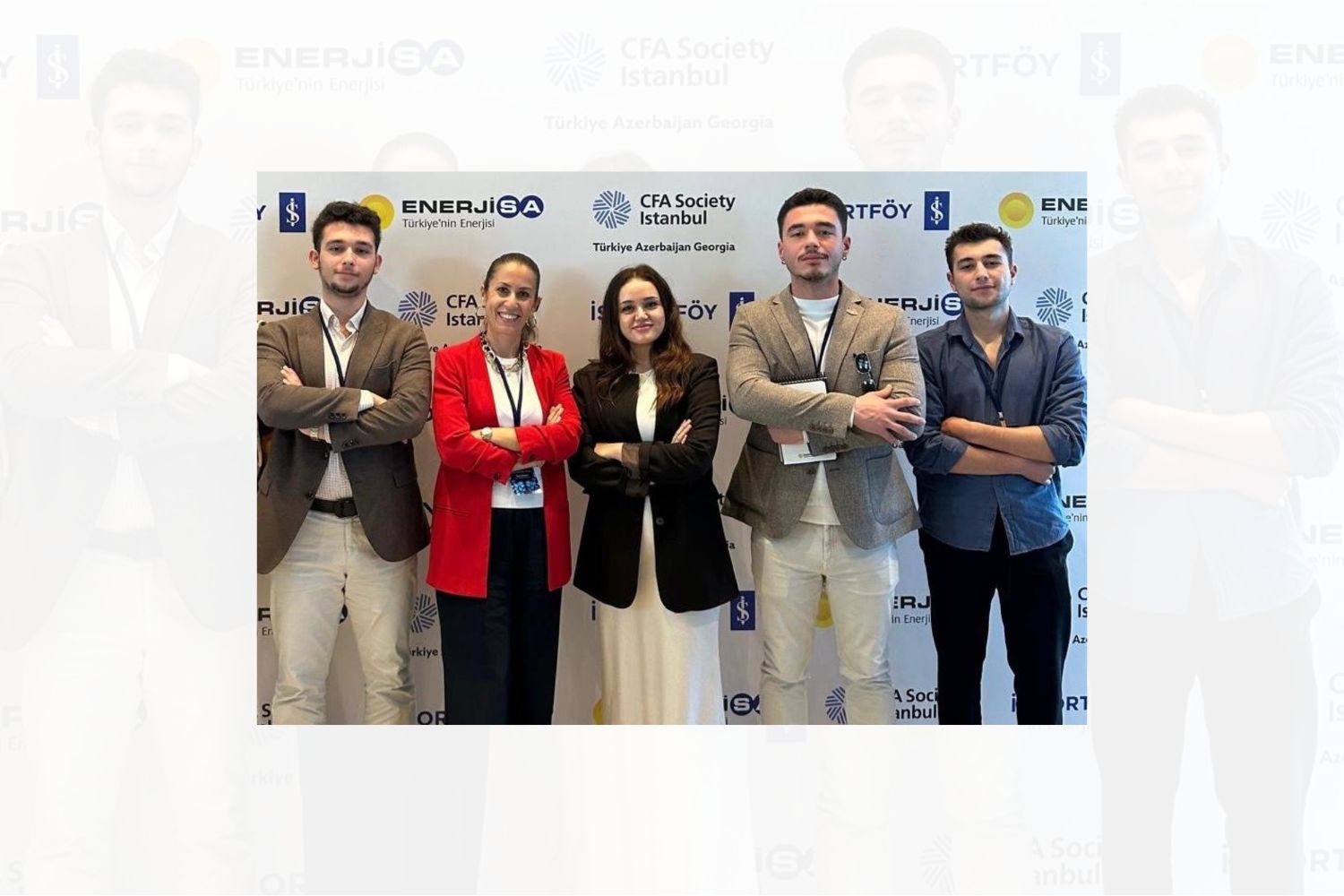
Their Goal is America
Students from Izmir University of Economics (IUE) have reached the finals of the ‘Research Challenge’, a competition organized by the ...
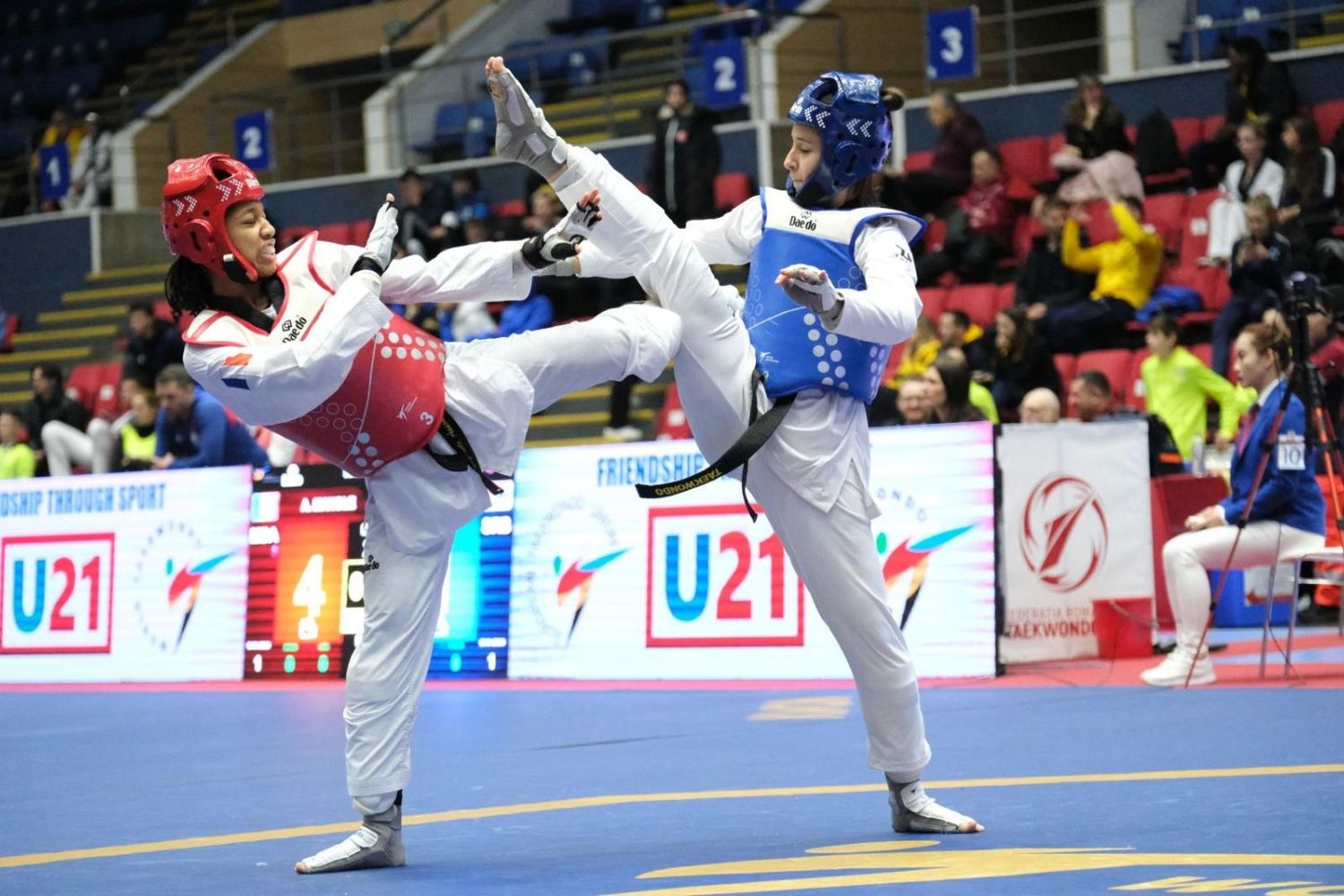
Started to protect herself, became a champion
Hatice Pınar Yiğitalp, a student at Izmir University of Economics (IUE), has risen to the national taekwondo team in a ...



